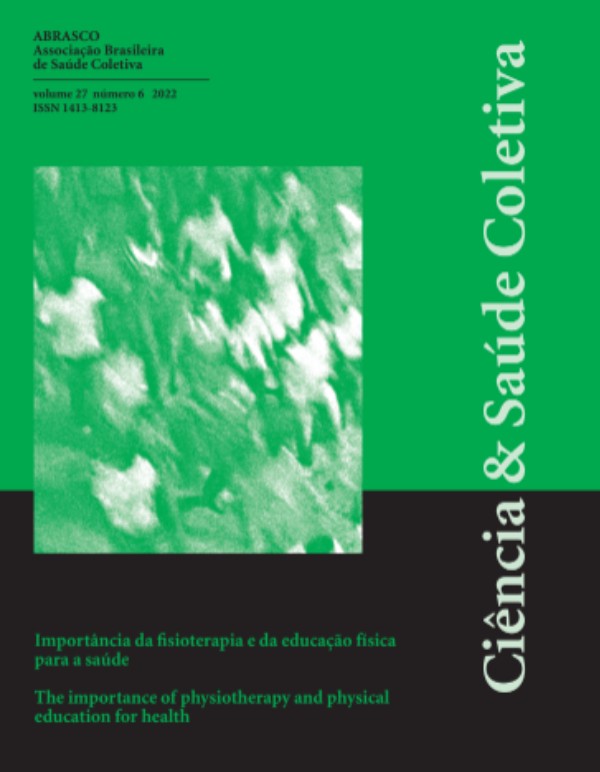0287/2021 - Assessment of the completeness of filling the pregnant woman\'s cardthe Ministry of Health: a national, cross-sectional study
Avaliação da completitude de preenchimento do cartão da gestante do Ministério da Saúde: estudo seccional, de âmbito nacional
Author:
• Lívia de Rezende de Mello - de Mello, L. de R. - <liviabrezende@gmail.com>ORCID: https://orcid.org/0000-0001-6841-3678
Co-author(s):
• Daniele Marano Rocha - Rocha, D.M - <danielemarano@yahoo.com.br>ORCID: https://orcid.org/0000-0001-6985-941X
• Maria Elisabeth Lopes Moreira - Moreira, M. E. L - <bebethiff@gmail.com>
ORCID: https://orcid.org/0000-0002-2034-0294
• Rosa Maria Soares Madeira Domingues - Domingues, R. M. S. M - <rosa.domingues@ini.fiocruz.br>
ORCID: https://orcid.org/0000-0001-5722-8127
• Ana Carolina Carioca da Costa - Costa, A.C.C - <carol.carioca@gmail.com>
ORCID: https://orcid.org/0000-0002-9456-3319
• Marcos Augusto Bastos Dias - Dias, M. A. B. D. - <marcosad@centroin.com.br>
ORCID: https://orcid.org/0000-0003-1386-7001
Abstract:
Objective: To assess the completeness of filling out the prenatal care card standardized by the Ministry of Health.Methods: This is a national, cross-sectional, hospital-based study, carried out between 2011 and 2012, that evaluated the data of antenatal care cardsthe Ministry of Health. To qualitatively assess the completeness of filling out the prenatal card we used variables related to clinical and obstetric history, current pregnancy data and results of routine exams. To assess the quantitative utilization of antenatal care (time of first consultation and total number of consultations) we used the Kotelchuck index.
Results: We evaluated 6,577 antenatal care cards, which corresponds to 39% of the prenatal care cards presented during birth care. The completeness of filling in the card fields was ‘poor’ in Brazil and macro-regions, except the South region, which was ‘regular’. In Brazil, the filling out was \'regular\' for personal history, \'good\' for obstetric history, and \'poor\' for records of current pregnancy, including procedures performed in the consultation and test results. Based on the Kotelchuck index, prenatal care was adequate in 58% of pregnant women.
Conclusion: We observed a reduced use of the antenatal care card model recommended by the Ministry of Health and failures in filling out relevant information, especially those related to current pregnancy.











